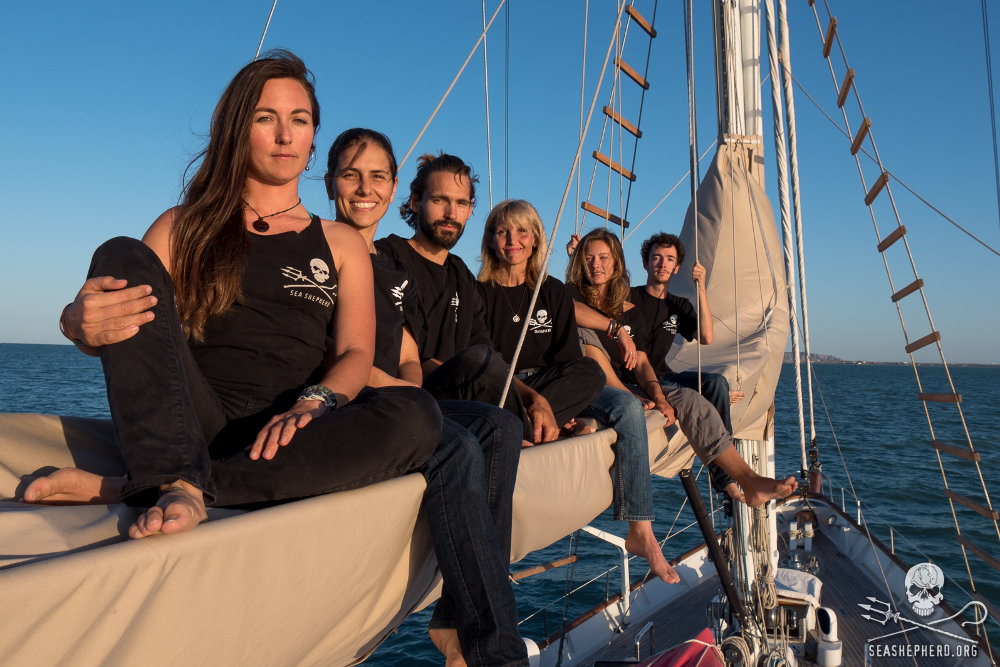Comments Reviews on theboatpeople.com Raft Cataraft Inflatable Kayak Products and Service › Forums › Environmental News › 97 vaquita porpoises left on Earrth
Tagged: vaquita porpoise
- This topic has 0 replies, 1 voice, and was last updated 9 years, 10 months ago by
 Lee Arbach TBP.
Lee Arbach TBP.
-
AuthorPosts
-
April 21, 2015 at 4:10 am #2407
 Lee Arbach TBPKeymaster
Lee Arbach TBPKeymasterWhat a shame!

The vaquita porpoise is considered by many to be the rarest species of marine mammal in the world – it is critically endangered, at imminent risk of extinction. It is estimated that as few as 97 vaquitas remain, living only in the warm waters of the northernmost tip of the Gulf of California (Sea of Cortéz), near Baja California, Mexico. The smallest of all seven porpoise species, it is also the smallest cetacean in the world. The vaquita, which means “little cow” in Spanish, is also known as the “smiley panda of the sea” due to its signature dark marks around its eyes and mouth.
Vaquitas have a comparatively short lifespan of approximately 20 years, and have never been held in captivity. With a slower rate of reproduction than that of other porpoises – giving birth to only one calf every two years – these petite porpoises are being wiped out far quicker than they can reproduce.
According to a 2014 report from the Comité Internacional para la Recuperacíon de la Vaquita (CIRVA), a committee that includes government agencies, marine biologists and NGOs, the vaquita population drastically plummets by 18.5 percent every year – and it is estimated that the vaquita could be extinct by 2018 if they continue to fall victim to by-catch. In 2012, CIRVA estimated 200 vaquitas were living in the wild, and just three years later, that number has been reduced by more than half. One of the major culprits is “invisible” fishing gillnets, used to catch large masses of fish and shrimp. Vaquitas become trapped in these nets that stretch through the waters for miles on end, drowning the vaquitas as they feed on fish and squid.
Now perhaps the biggest threat to their survival comes from poachers who are using these deadly gillnets to catch the prized totoaba fish in the marine reserve that should be a sanctuary for the endangered vaquita, native to these protected waters. Poachers of the totoaba – a critically endangered marine species itself – aim to cash in on the high price tag paid by Chinese consumers for the fish’s swim bladder, which is exported from Mexico, often being sent through the United States, and sold on the illegal black market in China, where it is served in soup. The fish are caught, their swim bladders removed, and the rest of the two-meter-long fish is simply left to rot. With just one kilogram of swim bladder fetching as much as $8,500 USD on the Asian black market, its sale is more lucrative than that of marijuana!
President Nieto and his committees have been very active in efforts to protect the vaquita from extinction. Since 2007, the Mexican government has spent approximately $55 million on these efforts, identifying and implementing life-saving solutions. Unfortunately, the vaquita is still in urgent need of help. The Mexican government has announced a two-year moratorium on gillnet fishing in the vaquita’s habitat in the northern Gulf of California, to take effect in late April 2015, and has given support to the Navy in its patrols of the marine reserve by providing speedboats dedicated to monitoring for illegal activity.
A permanent ban on using gillnets would have a tremendous effect on the small fishing villages that use them to haul shrimp and sustain an income. Entire villages could be economically wiped out if they are banned. However, Mexico is working to create new possibilities, offering assistance to local fishermen who agree to help protect the vulnerable vaquita by giving up gillnet fishing within the porpoise’s range. The government is offering a net “buy-out” or “rent-out” program for those who cooperate, and encouraging the development and use of alternative fishing gear that does not harm vaquitas.
Mexico is spending more than $30 million USD on its efforts for the vaquita. These are all important steps, but it is also critical that the U.S. and Chinese governments take decisive steps together to end the illegal totoaba trade that is threatening both endangered species.
There is hope that the vaquita population can slowly rebound – if effective measures are quickly put in place. You can get involved too, and be a part of the efforts to protect these critically endangered porpoises before it is too late! Please raise awareness of the important issues facing the vaquita among your network, reduce or, better yet, eliminate your consumption of seafood, and donate to Sea Shepherd’s Operation Milagro campaign to make our work possible.
-
AuthorPosts
- You must be logged in to reply to this topic.
- Click to share on Facebook (Opens in new window)
- Click to share on Twitter (Opens in new window)
- Click to share on LinkedIn (Opens in new window)
- Click to share on Pinterest (Opens in new window)
- Click to share on Tumblr (Opens in new window)
- Click to share on Reddit (Opens in new window)
- Click to share on Pocket (Opens in new window)
